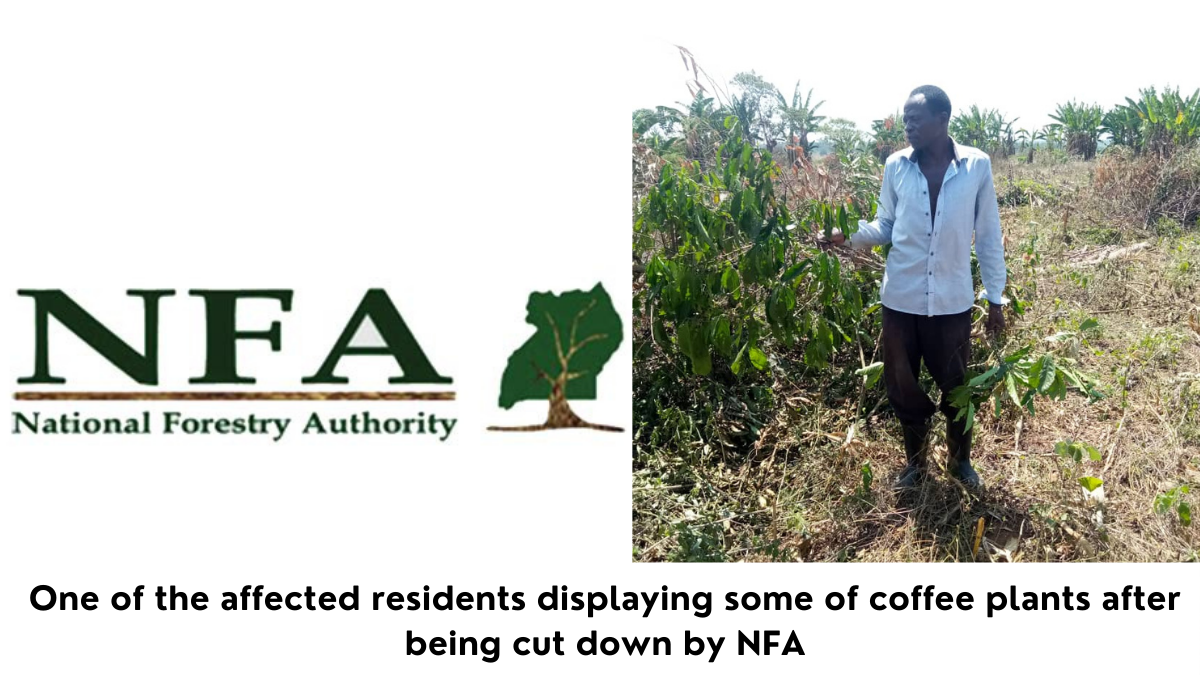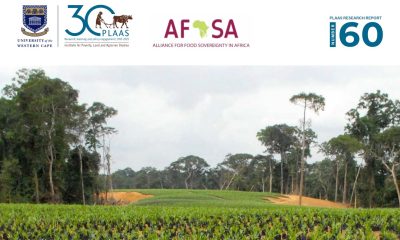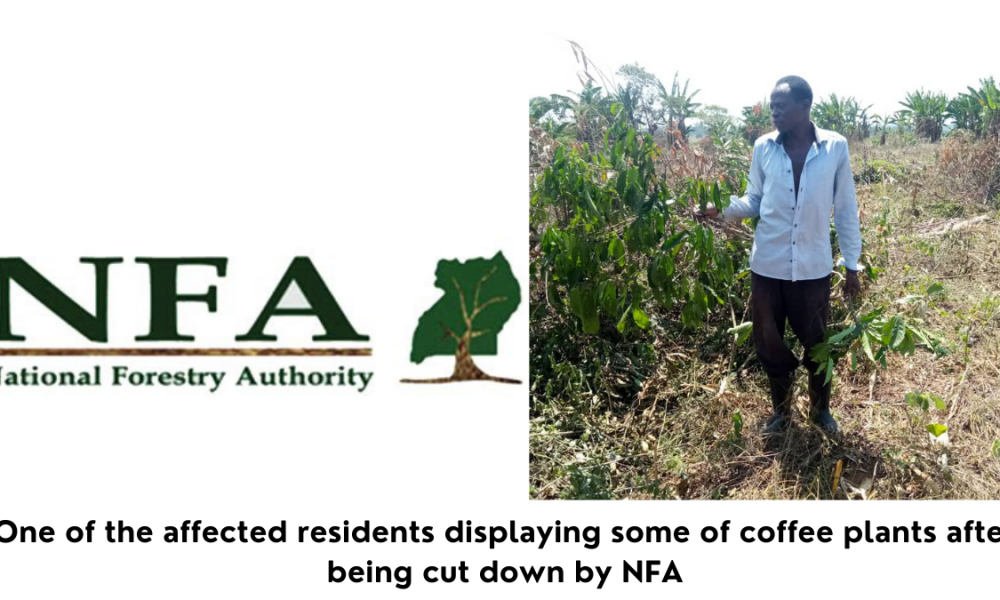By Witness Radio
A forest body in Uganda, the National Forestry Authority (NFA) is displacing over 700 poor families that have lawfully settled and cultivated their land since the 1920s. The targeted land is needed to plant monoculture trees.
The National Forestry Authority is a semi-autonomous statutory body established by c National Forestry and Tree Planting Act of 2003 and it’s charged with the responsibility to manage and control the country’s forests.
The land measuring about 2900 acres is located at Yandwe village, Butuntumula Sub County in Luweero district in Buganda region, in Uganda.
The forest authority is responsible for causing loss of properties and committing human rights violations/abuses against local and indigenous communities as land belonging to them is leased out to investors to plant trees for carbon offsets without following due processes.
According to Global Forest Watch (GFW), in 2010, Uganda had a tree cover of 6.93 Mha, extending over 29% of its land area. However as of 2020 the GFW latest data presented a tree cover loss of 76.3 kha in Uganda. In the same year, Luwero district was named with the most tree cover loss. It lost 9.10kha of tree cover, equivalent to 4.48Mt of CO₂ emissions.
Principle 10 of the Rio Declaration asserts that ‘environmental issues are best handled with the participation of all concerned citizens. This principle is seen to be in reverse in Uganda’s practice.
Before forced evictions which started in 2015, families used the land for subsistence farming to raise money to meet basic needs and grow food for feeding, burial grounds and constructed permanent houses that have earned them a sense of belonging for generations but NFA has since destroyed 70% of their heritage.
Since 2015, the families have been forcefully evicted without court orders, prior consultation, and consent to give away their land. “There has not been any single document that permitted them to evict us since 2015. They came with graders, armed police, and soldiers to terrorize the whole village and enforce their evictions. We were not informed, consulted, and neither did we consent to give them our land.” The local council chairman, Mr. Buule Cossy, also one of the affected said in an interview with Witness Radio – Uganda.
According to documents seen by Witness Radio – Uganda, ownership of land by the indigenous community is traced between the 1910s and early 1920s. Some locals have receipts indicating payments made to the then colonial matters while others have presented sale agreements.
On a fateful night, 18th March 2019, the entire village of Yandwe woke up to face the wrath of armed police, soldiers, and armed workers of NFA. Victims narrated that armed groups burnt their houses, razed gardens, and looted their properties at gunpoint before the majority of community members fled their homes.
The violence orchestrated by different armed groups left one villager identified as Ntalo Simon shot and badly wounded.
“We had one incident in which our community member Ntale was shot in the process of eviction and the victim was badly wounded while others were beaten, houses demolished and crops were cut down,” Buule confirmed.
The NFA claims that residents are occupying the forest land illegally. According to residents, Mbale Forestry Reserve was gazetted in 1967 as a central forest reserve land, found their ancestors already on the land. They claim they are the lawful owners of the land and accuse the NFA of forcefully grabbing their land tactically.
Another victim, Katongole John said his grandparents settled on this land in 1915 and claimed that they were paying some dues to the colonial administrators then.
“Upon making payment, colonial matters would issue a certificate known as an occupational license to the payee. The documents would prove land ownership”. he claimed.


 MEDIA FOR CHANGE NETWORK5 days ago
MEDIA FOR CHANGE NETWORK5 days ago
 MEDIA FOR CHANGE NETWORK2 weeks ago
MEDIA FOR CHANGE NETWORK2 weeks ago
 MEDIA FOR CHANGE NETWORK1 week ago
MEDIA FOR CHANGE NETWORK1 week ago
 MEDIA FOR CHANGE NETWORK5 days ago
MEDIA FOR CHANGE NETWORK5 days ago
 NGO WORK6 days ago
NGO WORK6 days ago
 NGO WORK5 days ago
NGO WORK5 days ago
 NGO WORK5 days ago
NGO WORK5 days ago



























